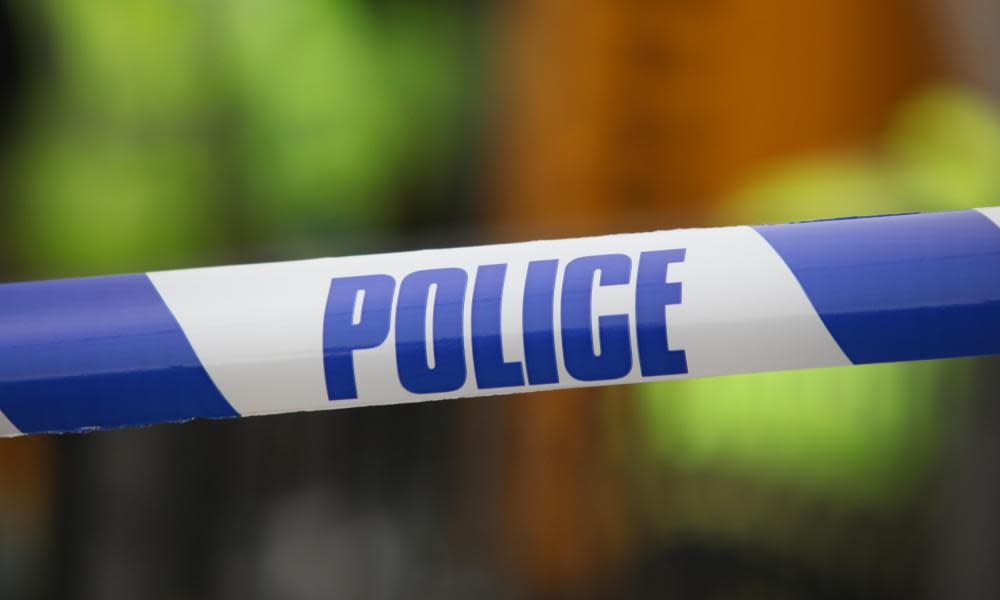Four men arrested by counter-terrorism police over potential attack

Armed counter-terrorism police made a series of arrests on Thursday, over what they described a a potential attack linked to extremist Islamist ideology.
Four men were arrested, three in east London. A fourth arrest was made by unarmed officers in Leicestershire.
Neighbours near one address in Ilford said they heard loud bangs as armed police went in. At a suburban home in Goodmayes, at least seven specialist counter-terrorism firearms officers were seen staging a raid.
During one arrest in east London, a man was bitten on the foot by a police dog.
Social media footage shows one officer at Ilfracombe Gardens, Goodmayes, instructing those inside to “walk towards me slowly” and “place your hands on your head”. A door was smashed and broken glass was strewn after the raid.
The raids followed a joint investigation by counter-terrorism police and MI5, the security service.
Investigators had been considering whether to arrest the men for some time and the operation was “intelligence-led”.
Sources said the arrests may be significant and that the investigation was at an early stage. Arrests under terrorism laws do not always lead to charges, one source stressed.
Those detained were arrested on suspicion of being “concerned in the commission, preparation or instigation of acts of terrorism”, under section 41 of the Terrorism Act (TACT) 2000.
Police said two east London addresses were raided and at one a man, 27, was arrested. At a second address in east London a man aged 31 and male aged 17 were detained. In Leicestershire police arrested a man aged 32.
In a statement, Scotland Yard’s counter-terrorism command said: “The arrests in east London were carried out with the support of armed officers. No shots were fired, although one of the men [aged 27] was bitten on the foot by a police dog during the course of his arrest and has been taken to hospital. His injuries are not believed to be serious.”
Those arrested remain in police custody.
The intelligence that led to the arrests suggested a possible plot described as being of “low sophistication”.
Police and MI5 made the decision to arrest the men at a meeting known as an executive liaison group, where intelligence officers and senior detectives weigh up the risks of letting the intelligence-gathering phase of the operation run against any potential risk to the public and of people they consider suspects escaping.
The decision to deploy specialist firearms officers is unusual, even for counter-terrorism raids, and means it was assessed that those making the arrest needed an extra level of protection.
Police said: “Officers are currently searching the three addresses, and a search is also underway at a fourth address in east London as part of the investigation.”
Investigators will be searching for electronic devices for evidence of activity to prove or disprove their suspicions.
In November, the UK’s national terrorism threat level was lowered from severe to substantial for the first time in five years. Since then there have been three alleged terror attacks.
Weeks after the official announcement, on 29 November, Jack Merritt, 25, and Saskia Jones, 23, were stabbed to death by Usman Khan, 28, who was tackled by people at a prisoner rehabilitation conference at London Bridge. Khan’s attack was halted only when he was shot dead by armed officers.
On 2 February, Sudesh Amman, who had been recently released while serving a terrorism sentence, stabbed two people in Streatham, south London. He wore a fake suicide vest and armed surveillance officers had been following him and shot him dead.
Last month three people died after an alleged terrorist stabbing in Reading. Khairi Saadallah, 25, is due to stand trial for the murder of three people.
The “substantial” threat level means there is a high level of threat and an attack might well occur without further warning.

 Yahoo News
Yahoo News 
